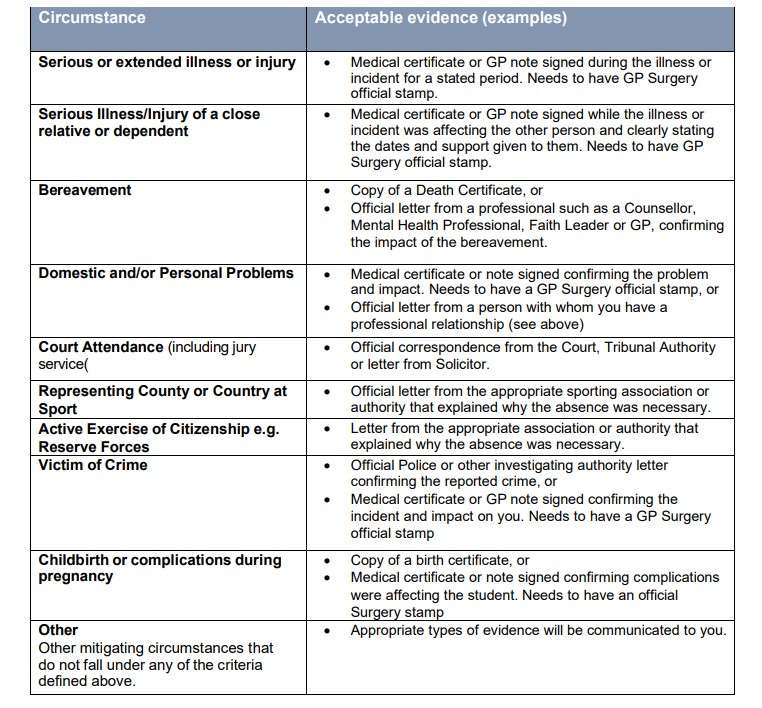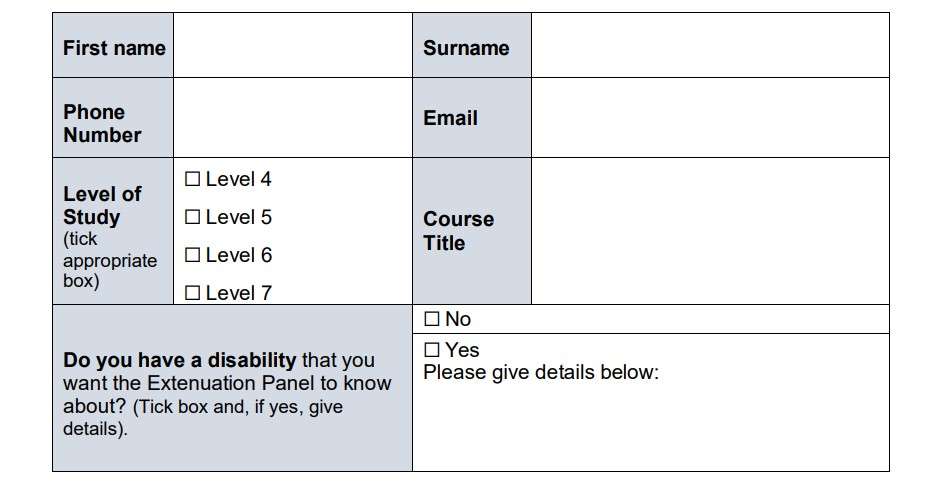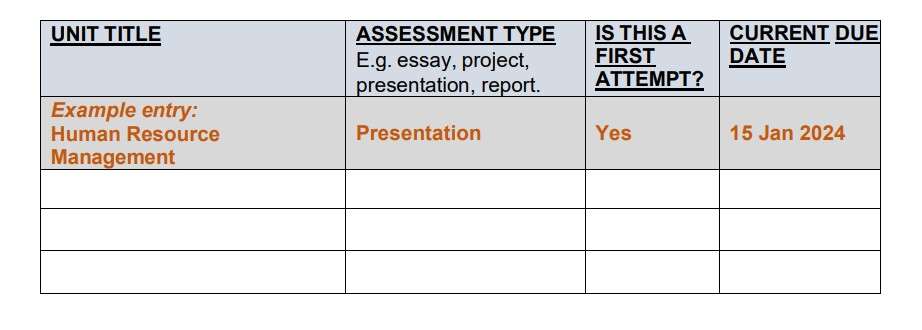1. Introduction
Extenuating Circumstances Policy
1.1 To deliver its strategic policy aims of excellence in Curriculum Innovation,
Learning, Teaching and Assessment and the Student Experience, Results has a policy of enabling students to claim extenuating circumstances for an extension of a submission deadline or to be considered when marking a submission.
1.2 This Policy sets out the College’s arrangements for considering requests for
extenuation in certain circumstances.
1.3 This Policy applies to all students in Higher Education.
1.4 All requests for mitigation will be treated confidentially, processed formally, and judged impartially. Procedures for consideration of claims will be applied consistently. Only relevant staff will have access to information students have willingly shared as part of the extenuating circumstances process.
1.5 All claims and evidence will be kept by the College for the duration of time as
stated in the College’s Records Retention Policy, after which the evidence shall be destroyed.
2. Definitions
2.1 The College considers extenuating circumstances to be unforeseeable and unpreventable. They must have a significant adverse impact on the academic performance of a student.
2.2 Unforseeable – student could have no prior knowledge of the event concerned
Unpreventable – student could do nothing reasonable to prevent such an event
Significant – serious, important or exceptional
Adverse – preventing success or development, negative or harmful
3. Grounds for Extenuation
3.1 Students are expected to make reasonable plans to avoid commonly occurring circumstances (such as transport or computer problems) even those which, on occasion, may have been unforeseeable and unpreventable.
3.2 The table below shows examples of extenuating circumstances which may or may not be accepted. Further details can be found in Appendix 1.

4. Independent documentary evidence
4.1 All claims for extenuation must be supported by independent documentary evidence.
Copies of evidence can only be accepted where there is a reasonable explanation for the original not being available. The evidence must be an official document, e.g. a signed letter on official headed paper, and must include the dates during which the circumstances applied, and the contact details of the person or company supplying the evidence for verification purposes if required (see appendix 1).
4.2 Students are responsible for ensuring that they are registered with a medical practice during the course of their studies at the College, should medical evidence be required.
4.3 The College reserves the right to check the authenticity of all documentation
submitted as part of an extenuating circumstances claim. In the event that a student is found to have submitted evidence which is not authentic, this will normally be investigated in accordance with the Academic Misconduct policy.
4.4 All documentary evidence should be presented in English. Any evidence that is not in English must be translated using an authorised translator before it is submitted.
5. Procedure
5.1 AExtenuating circumstances requests must be submitted prior to (or, in exceptional circumstances, on) the day of the assessment deadline.
5.2 It is recognised that there may be cases where a student is unable to submit a claim for extenuation within the above time period (e.g. emergency inpatient hospital treatment occurring immediately prior to the submission date and time). These are classed as exceptional cases. In these cases, submission of the claim should be made at the earliest opportunity. Exceptional case claims must be made before the publication of results.
5.3 Claims will not be accepted after the publication of results.
5.4 If students have a valid reason for not having claimed extenuating circumstances by the published deadline, they can appeal using the academic appeal process.
5.5 Where it is not possible to provide the evidence within the timeframe, students must submit the form within the deadline and provide a clear indication of the evidence that is to follow, and the expected timeframe.
5.6 Students who submit requests after the deadline for submission of claims will need to provide a credible and compelling explanation as to why the circumstances were not known or could not have been shown/notified before the deadline for the submission of claims.
5.7 Failure to submit due to a lack of understanding of the procedure or the timeframe will not normally be considered acceptable. Submissions made without supporting evidence as outlined in this policy will not be considered.
5.8 Students are responsible for submitting their own requests for extenuating circumstances and for providing relevant, independent documentary evidence to support their claim. Students’ requests for mitigation must clearly state which assessments have been affected by the circumstances.
5.9 Students who wish to claim Extenuating Circumstances should first contact the Student Support Team or their Tutor, who will offer information, advice and guidance on the situation and refer the students to this policy and procedure.
5.10 Students claiming Extenuating Circumstances are required to complete an Extenuating Circumstances Form (see appendix 2).
5.11 Completed Extenuating Circumstances Forms should be submitted at studentsupport@resultsco.org.uk
5.12 An Extenuation Panel will be convened regularly throughout the year to provide timely consideration of claims. The Panel will consider the claim and the evidence submitted in support of that claim. The purpose of the Extenuation Panel is to establish whether there is substantiated evidence of eligible circumstances, and that there is clear evidence that the dates of the assessment and the dates of the Extenuating Circumstances demonstrate that the student’s performance would have been affected
5.13 Where a student submits a claim that has been considered by the Extenuation Panel, the application cannot be withdrawn at a later date.
5.14 Decisions from the Extenuations Panel can only be considered by an Assessment Board. The Minutes of Extenuating Circumstances Panel meetings may be presented to the relevant Assessment Board and can be made available to the External Examiner(s) for a programme, on request.
5.15 The Student Support Team will be responsible for notifying students of the outcome of their Extenuating Circumstances claim as made by the Extenuation Panel, within five working days of the panel sitting.
5.16 Chair’s Action will allow for timely and straightforward decisions to be made only for students where it is clear that difficult circumstances have affected their wellbeing and ability to perform to their potential. In such cases, Chair’s Actions must be recorded and reported to the appropriate Extenuation Panel.
5.17 If the Extenuation Panel does not grant extenuation, the assessment will be capped at Pass.
5.18 Under no circumstances will extenuating circumstances be grounds for adjusting marks awarded.
5.19 Any claim for extenuation that is found to be in any part fraudulent will be considered as a matter of misconduct and dealt with under the Student Code of Conduct and Disciplinary Procedure.
6 Appeals
6.1 A student has no right to appeal the outcome of an Extenuating Circumstances request.
6.2 Following the publication of results, a student can appeal using the Academic Appeals Process.
Appendix 1: Examples of extenuating circumstances and acceptable evidence
Below is a list of circumstances that we consider to be significant enough to be considered grounds for applying for extenuating circumstances. There is also information about what evidence is acceptable, which should be submitted alongside any application.

Appendix 2 – Extenuating Circumstances Form
Extenuating Circumstances Form
Extenuating circumstances are defined as unexpected events outside your control which are likely to have a negative impact on your ability to successfully complete an assessment. If you are not fit to submit the assessment and wish to defer, you should submit this form.
For further information please refer to our Extenuating Circumstances policy or contact the Student Support Team at studentsupport@resultsco.ac.uk
Please complete the form in full, attach your evidence and submit to the Student Support Team at studentsupport@resultsco.ac.uk prior to the assessment.
1. Student Details

2. Assessment (s) Affected

3. Reason for Application
Please give details about:
• why you are applying for extenuating circumstances
• dates you were affected
• impact on your studies

4. Evidence
Please list all the documented evidence that you have provided to substantiate your claim.

5. Declaration
By submitting this form, you are confirming that you have read and understood the Extenuating Circumstances policy and that the information and evidence you have provided is true and accurate. Making false claims or falsifying evidence could lead to disciplinary procedures.
The Extenuating Circumstances Panel reserves the right to reject claims where no evidence is provided and to check the validity of document(s) submitted. I consent to the information I provide in this form, and any supporting evidence, being processed by the College for this purpose.

